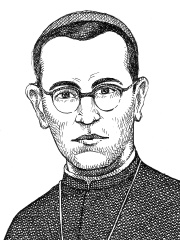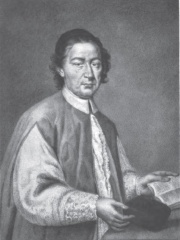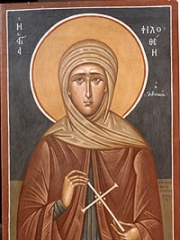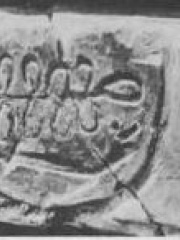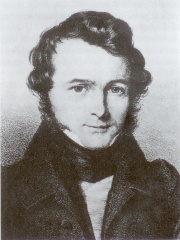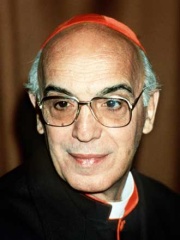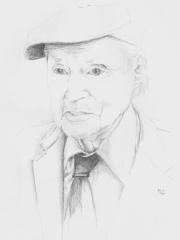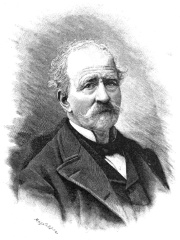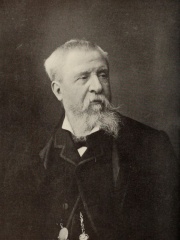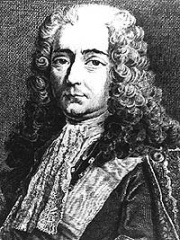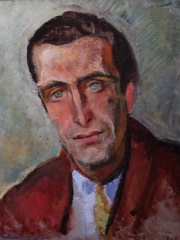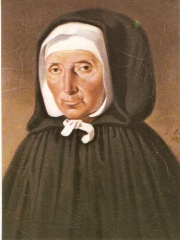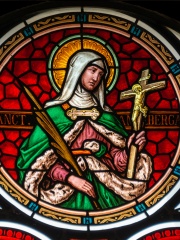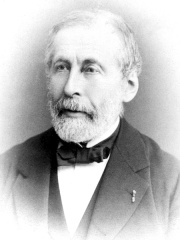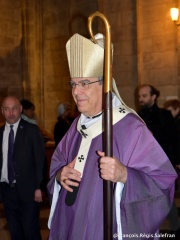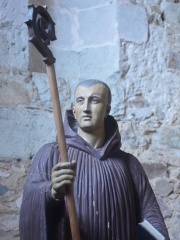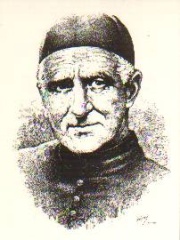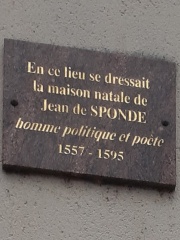Религиозный деятель
Adalbero of Reims
RU.WIKIPEDIA PAGE VIEWS (PV)
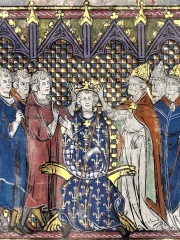
 Adalbero of Reims
Adalbero of Reims
Его биография доступна на 15 различных языках в Википедии. Adalbero of Reims занимает 2631-е место среди самых популярных религиозный деятель (снижение с 2574-е места в 2024 году), занимает 4154-е место среди самых популярных биографий из Франции (рост с 4314-е места в 2019 году) и занимает 208-е место среди религиозный деятель Франция.
Memorability Metrics
Page views of Adalbero of Reims by language
Among Религиозный деятель
Among религиозный деятель, Adalbero of Reims ranks 2,631 out of 3,187. Before him are Szilárd Bogdánffy, Giuseppe Simone Assemani, Roberto Tucci, Rosalio José Castillo Lara, George Abbot, and Hsing Yun. After him are Philothei of Athens, Sekhemre Shedwast, Gaëtan Dugas, Christian Erich Hermann von Meyer, Pedro Casaldáliga, and Ángel Suquía Goicoechea.
Most Popular Религиозный деятель in Wikipedia
Go to all RankingsSzilárd Bogdánffy
1911 - 1953
HPI: 57.17
Rank: 2,625
Giuseppe Simone Assemani
1686 - 1768
HPI: 57.17
Rank: 2,626
Roberto Tucci
1921 - 2015
HPI: 57.16
Rank: 2,627
Rosalio José Castillo Lara
1922 - 2007
HPI: 57.15
Rank: 2,628
George Abbot
1562 - 1633
HPI: 57.15
Rank: 2,629
Hsing Yun
1927 - 2023
HPI: 57.14
Rank: 2,630
Adalbero of Reims
HPI: 57.13
Rank: 2,631
Philothei of Athens
1522 - 1589
HPI: 57.13
Rank: 2,632
Sekhemre Shedwast
HPI: 57.13
Rank: 2,633
Gaëtan Dugas
1952 - 1984
HPI: 57.13
Rank: 2,634
Christian Erich Hermann von Meyer
1801 - 1869
HPI: 57.12
Rank: 2,635
Pedro Casaldáliga
1928 - 2020
HPI: 57.11
Rank: 2,636
Ángel Suquía Goicoechea
1916 - 2006
HPI: 57.10
Rank: 2,637
In Франция
Among people born in Франция, Adalbero of Reims ranks 4,154 out of NaN. Before him are Richard Gasquet (1986), Marie-Anne Chazel (1951), Maurice Genevoix (1890), René Petit (1899), Maurice Guigue (1912), and Élie-Abel Carrière (1818). After him are Louis-Ernest Barrias (1841), Philippe Rousselot (1945), René Louis de Voyer de Paulmy d'Argenson (1694), Catherine Colonna (1956), Joseph Alzin (1893), and Pierre Emmanuel (1916).
Others born in Франция
Go to all RankingsRichard Gasquet
TENNIS PLAYER
1986 - Present
HPI: 57.19
Rank: 4,148
Marie-Anne Chazel
ACTOR
1951 - Present
HPI: 57.16
Rank: 4,149
Maurice Genevoix
WRITER
1890 - 1980
HPI: 57.14
Rank: 4,150
René Petit
SOCCER PLAYER
1899 - 1989
HPI: 57.14
Rank: 4,151
Maurice Guigue
REFEREE
1912 - 2011
HPI: 57.14
Rank: 4,152
Élie-Abel Carrière
BIOLOGIST
1818 - 1896
HPI: 57.13
Rank: 4,153
Adalbero of Reims
RELIGIOUS FIGURE
HPI: 57.13
Rank: 4,154
Louis-Ernest Barrias
SCULPTOR
1841 - 1905
HPI: 57.13
Rank: 4,155
Philippe Rousselot
FILM DIRECTOR
1945 - Present
HPI: 57.13
Rank: 4,156
René Louis de Voyer de Paulmy d'Argenson
POLITICIAN
1694 - 1757
HPI: 57.13
Rank: 4,157
Catherine Colonna
POLITICIAN
1956 - Present
HPI: 57.12
Rank: 4,158
Joseph Alzin
ATHLETE
1893 - 1930
HPI: 57.12
Rank: 4,159
Pierre Emmanuel
WRITER
1916 - 1984
HPI: 57.12
Rank: 4,160
Among Религиозный деятель In Франция
Among религиозный деятель born in Франция, Adalbero of Reims ranks 208. Before him are Jeanne Jugan (1792), Amalberga of Maubeuge (601), Alfred Des Cloizeaux (1817), Michel Aupetit (1951), Philibert of Jumièges (608), and Jean-Louis Bruguès (1943). After him are Jean-Paul Vesco (1962), Ratramnus (800), Jacques Gaillot (1935), Michel Garicoïts (1797), Jean Marcel Honoré (1920), and Jean de Sponde (1557).
Jeanne Jugan
1792 - 1879
HPI: 58.05
Rank: 202
Amalberga of Maubeuge
601 - 670
HPI: 57.95
Rank: 203
Alfred Des Cloizeaux
1817 - 1897
HPI: 57.54
Rank: 204
Michel Aupetit
1951 - Present
HPI: 57.40
Rank: 205
Philibert of Jumièges
608 - 684
HPI: 57.37
Rank: 206
Jean-Louis Bruguès
1943 - Present
HPI: 57.23
Rank: 207
Adalbero of Reims
HPI: 57.13
Rank: 208
Jean-Paul Vesco
1962 - Present
HPI: 56.70
Rank: 209
Ratramnus
800 - 868
HPI: 56.63
Rank: 210
Jacques Gaillot
1935 - 2023
HPI: 56.53
Rank: 211
Michel Garicoïts
1797 - 1863
HPI: 55.99
Rank: 212
Jean Marcel Honoré
1920 - 2013
HPI: 55.96
Rank: 213
Jean de Sponde
1557 - 1595
HPI: 55.90
Rank: 214
